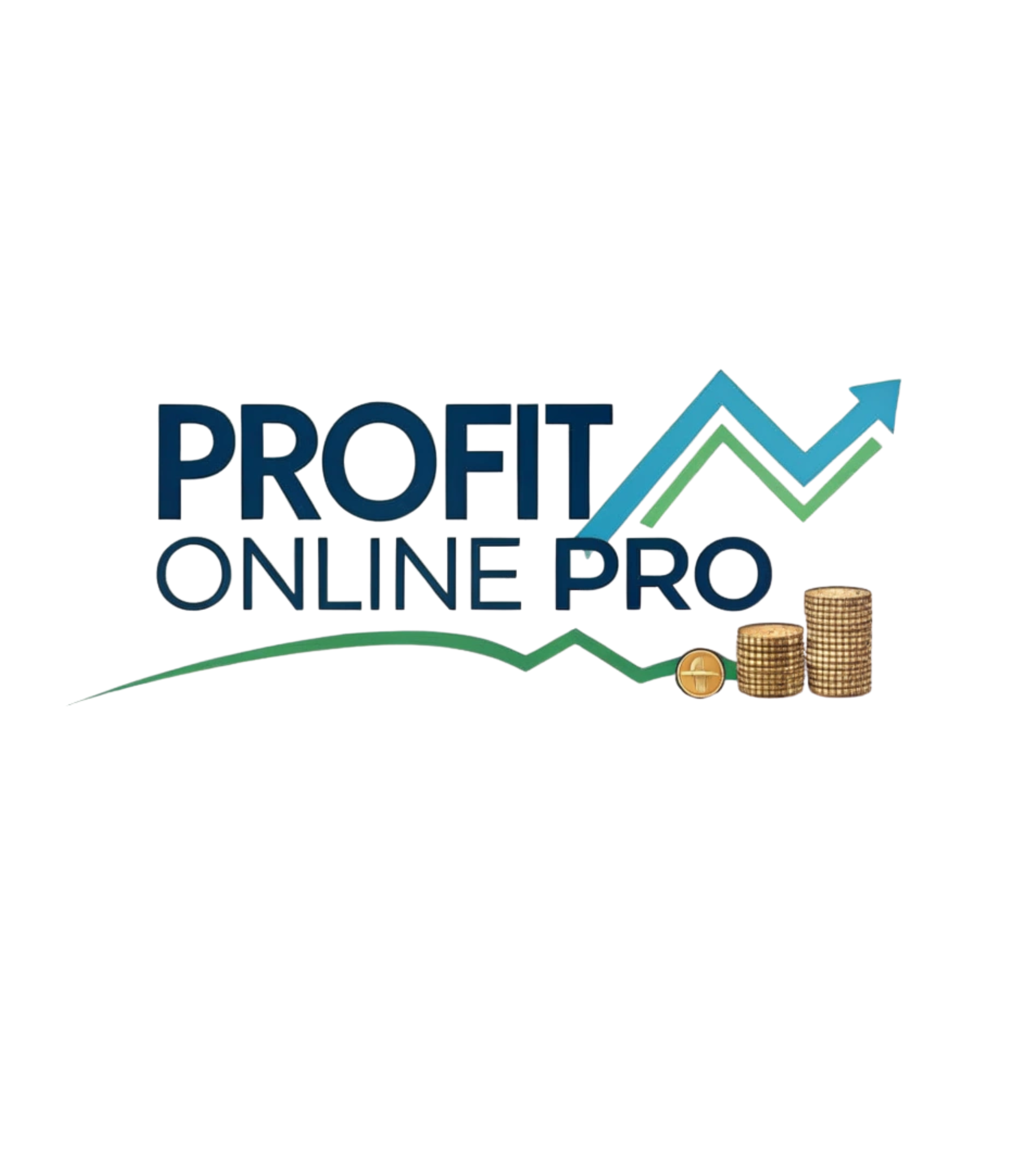The digital landscape is transforming the way we work, and remote business ideas are becoming increasingly popular. In 2025, more individuals are turning to online businesses to escape the constraints of traditional employment and enjoy the freedom to work from anywhere.
With low startup costs and the potential for global scalability, remote businesses offer a promising opportunity for entrepreneurs. As the digital economy continues to grow, it’s an ideal time to explore the world of online business and create a successful remote business that generates income.
Key Takeaways
- Discover the benefits of remote businesses, including freedom and global scalability.
- Explore top remote business models and ideas for 2025.
- Learn about the essential tools and platforms for online business success.
- Understand the importance of low startup costs in remote businesses.
- Find out how to achieve entrepreneurial goals with a remote business.
The Appeal of Remote Business in Today’s Digital Economy
Remote businesses have become increasingly appealing in today’s digital landscape, providing individuals with the freedom to work on their own terms. The digital economy has opened up new avenues for entrepreneurs to work for themselves and create successful businesses without geographical constraints.
The flexibility that comes with remote work is a significant draw for many. Entrepreneurs can now start a business from home and manage it from anywhere, at any time, as long as they have a stable internet connection. This level of flexibility is particularly appealing to those who value work-life balance and wish to escape the monotony of a traditional 9-to-5 job.
Freedom and Flexibility of Location-Independent Work
One of the most significant advantages of remote businesses is the freedom to work from anywhere. As a digital entrepreneur, you are not limited by your geographical location. You can work from a coffee shop in New York, a beach in Bali, or a mountain lodge in Colorado. This freedom allows you to choose your work environment based on your preferences and productivity needs.
Low Startup Costs and Global Scalability
Remote businesses often require low startup costs, as they don’t necessitate a physical storefront or significant initial investment. Moreover, they offer the potential for global scalability, enabling entrepreneurs to reach customers worldwide. With the right digital tools and marketing strategies, a remote business can quickly expand its customer base across different countries and regions.

“The future of work is not about working from home, it’s about working from anywhere.”
This quote encapsulates the essence of remote businesses, highlighting their potential to revolutionize the way we work and live.
How to Start a Remote Business in 2025: The Essential Roadmap
Starting a remote business in 2025 requires a deep understanding of the current digital landscape and a clear roadmap for success. The post-pandemic era has accelerated the shift towards online commerce and digital services, presenting numerous opportunities for entrepreneurs to establish a low-cost business with location-independent income.
Understanding the Post-Pandemic Digital Landscape
The digital landscape has undergone significant changes since the pandemic, with a notable increase in online transactions and digital communication. Entrepreneurs must understand these shifts to identify viable remote business ideas. According to a recent report, the global digital economy is expected to continue growing, driven by advancements in technology and changing consumer behaviors.

Key Success Factors for Remote Entrepreneurs
To succeed in the remote business landscape, entrepreneurs must be adaptable, possess a solid business plan, and leverage the right tools and technologies. As noted by Richard Branson, “Entrepreneurship is about turning what excites you in life into capital, so that you can do more of it and more of it and more of it.”
“The biggest risk is not taking any risk…” – Mark Zuckerberg
A key factor is also the ability to navigate the digital marketplace effectively, which includes understanding consumer needs and staying ahead of the competition.
Setting Realistic Timeline and Expectations
Building a successful remote business takes time and effort. It’s crucial to set realistic timelines and expectations to avoid burnout and disappointment. A well-planned strategy includes milestones and benchmarks to measure progress.
| Timeline | Milestones | Expectations |
|---|---|---|
| 0-3 months | Market research, business planning | Establishing a solid foundation |
| 3-6 months | Launch of minimal viable product (MVP) | Initial customer acquisition |
| 6-12 months | Scaling the business, marketing efforts | Growth in customer base and revenue |
Identifying Your Perfect Remote Business Opportunity
The key to a successful online business in 2025 lies in finding the perfect remote business opportunity that aligns with your strengths. As a digital entrepreneur, you have the flexibility to choose from a wide range of business ideas that can be operated from the comfort of your home.
To identify your ideal remote business, you need to start by assessing your skills, experience, and passions. This self-reflection will help you narrow down business ideas that you’re not only good at but also enjoy doing.
Assessing Your Skills, Experience, and Passions
Begin by making a list of your skills, both hard and soft. Consider your work experience, hobbies, and areas where you’re knowledgeable. Your passions are equally important, as they can drive motivation and enjoyment in your business venture.
| Skills | Experience | Passions |
|---|---|---|
| Programming | Software Development | Web Development |
| Marketing | Digital Marketing | Social Media |
| Writing | Content Creation | Blogging |
Researching Market Demand and Competition
Once you have a list of potential business ideas based on your skills, experience, and passions, it’s crucial to research the market demand and competition. Tools like Google Trends, Keyword Planner, and social media can provide insights into what people are looking for and how saturated the market is.
As Steve Blank once said,
“No business plan survives first contact with customers.”
This emphasizes the importance of validating your business idea.
Validating Your Business Idea Before Launch
Validation involves testing your business idea with a small group of potential customers to gauge interest and gather feedback. This can be done through surveys, landing pages, or minimum viable products (MVPs).
By following these steps, you can confidently identify a remote business opportunity that not only aligns with your strengths but also has the potential for success in the market.
Top Remote Business Models with Growth Potential
As the digital economy continues to evolve, several remote business models have emerged with significant growth potential. Entrepreneurs are now presented with a myriad of opportunities to start and scale businesses that are not only lucrative but also offer the flexibility of location-independent income.
Several models have gained prominence in recent times, offering entrepreneurs a chance to carve out their niche in the digital landscape.
Digital Products: eBooks, Courses, and Templates
Creating and selling digital products such as eBooks, online courses, and templates can be a highly profitable venture. With minimal upfront costs and the ability to reach a global audience, digital products offer a scalable business model. According to a recent report, the global e-learning market is expected to reach $240 billion by 2028, highlighting the potential for online courses.
Freelancing and Specialized Consulting Services
Offering freelancing and specialized consulting services is another viable remote business model. Platforms like Upwork and Fiverr have made it easier for professionals to market their skills to a global client base. Specialized services such as digital marketing, IT consulting, and financial advisory services are in high demand.
Dropservicing and Digital Agency Models
Dropservicing, where you sell services without directly performing them, is gaining traction. By outsourcing tasks to freelancers or other agencies, entrepreneurs can focus on marketing and client acquisition. This model is particularly appealing as it requires little to no initial investment in talent.
Affiliate Marketing and Partnership Strategies
Affiliate marketing involves promoting other companies’ products or services and earning a commission on sales. This model can be particularly lucrative when combined with a strong content marketing strategy. Partnerships with other businesses can also open up new revenue streams.
Content Creation and Monetization Channels
Creating valuable content through blogs, YouTube channels, or podcasts can be monetized through various channels such as advertising, sponsorships, and affiliate marketing.
“Content is king,” as noted by Bill Gates, highlighting its importance in digital marketing strategies.
Successful content creators can build a loyal audience and generate significant income.
These remote business models not only offer the potential for substantial income but also provide the flexibility to work from anywhere. By understanding the nuances of each model, entrepreneurs can make informed decisions about which opportunities to pursue.
E-Commerce Opportunities for Location-Independent Entrepreneurs
E-commerce has revolutionized the way businesses operate, offering location-independent entrepreneurs a chance to thrive in a digital economy. With the rise of online shopping, entrepreneurs can now explore various e-commerce models that offer flexibility and scalability.
The flexibility to operate from anywhere makes e-commerce an attractive option for entrepreneurs looking to escape the constraints of a traditional brick-and-mortar business. Two popular e-commerce business models that have gained significant traction are dropshipping and inventory-based models.
Dropshipping vs. Inventory-Based Business Models
Dropshipping allows entrepreneurs to sell products without holding any inventory. By partnering with a supplier, the products are shipped directly to the customer, reducing upfront costs and logistical complexities. On the other hand, inventory-based models require businesses to stock products, giving them more control over shipping and product quality.
While dropshipping offers lower initial investment and reduced risk, inventory-based models can provide higher profit margins and better control over the customer experience. Entrepreneurs must weigh these factors when deciding which model aligns best with their business goals and resources.
Print-on-Demand and Custom Product Businesses
Print-on-demand and custom product businesses offer another avenue for location-independent entrepreneurs. These models enable the creation and sale of customized products, such as t-shirts, mugs, and phone cases, without holding inventory. By leveraging print-on-demand services, entrepreneurs can focus on design and marketing, while the production and shipping are handled by the service provider.
This model not only reduces the financial risk associated with inventory but also allows for a wide range of product offerings, catering to diverse customer preferences. As a result, print-on-demand and custom product businesses have become increasingly popular among entrepreneurs looking to capitalize on niche markets.
Essential Platforms to Launch Your Remote Venture
The success of a remote venture heavily depends on selecting the appropriate online platforms. With numerous options available, entrepreneurs must choose platforms that align with their business models and goals.
Several key platforms can facilitate the launch and growth of remote businesses. These platforms offer a range of tools and services tailored to different business needs.
Shopify for E-Commerce Businesses
Shopify is a leading e-commerce platform that provides businesses with the tools they need to manage online stores effectively. It offers customizable themes, secure payment processing, and comprehensive inventory management.
Gumroad for Digital Product Sales
Gumroad is an ideal platform for selling digital products, including eBooks, software, and memberships. It simplifies the process of selling digital goods directly to customers.
Etsy for Handmade and Vintage Items
Etsy is a popular marketplace for handmade, vintage, and unique items. It provides a platform for artisans and sellers to reach a global audience.
Podia for Courses, Memberships, and Digital Downloads
Podia is a versatile platform that allows creators to sell courses, memberships, and digital downloads. It offers features like email marketing and customer engagement tools.
By leveraging these platforms, remote entrepreneurs can streamline their operations, reach wider audiences, and drive sales. The right platform can significantly impact the success of a remote business.
Building a Strong Online Presence and Brand
In the modern digital economy, building a strong online brand is no longer a luxury, but a necessity for remote entrepreneurs. A robust online presence is foundational for establishing credibility, attracting clients, and differentiating your business in a crowded market.
Creating a Simple Yet Effective Website
A simple yet effective website is the cornerstone of your online presence. It should clearly communicate your brand’s message, value proposition, and services. Focus on user experience, ensuring that your site is easy to navigate, mobile-friendly, and loads quickly. This will not only improve user engagement but also enhance your search engine rankings.
Developing a Consistent Brand Identity
Developing a consistent brand identity across all platforms is crucial for building recognition and trust with your audience. This includes having a uniform visual identity (logos, color schemes, typography), tone of voice, and messaging. Consistency is key to making your brand memorable and professional.
Content Strategy for Authority and Visibility
A well-planned content strategy is essential for establishing authority in your niche and improving visibility in search engine results. This involves creating high-quality, relevant content that addresses the needs and concerns of your target audience. Utilize a mix of content types, such as blog posts, videos, and social media posts, to engage your audience and drive traffic to your website.
By focusing on these key areas, remote entrepreneurs can build a strong online presence and brand that attracts and retains customers, driving long-term success.
Growing Your Personal Audience and Customer Base
As a remote entrepreneur, expanding your personal audience and customer base is crucial for sustained business growth. This involves leveraging various strategies to attract and retain customers, ultimately driving sales and revenue.
Social Media Growth Strategies That Convert
Effective social media marketing is key to growing your audience. This includes creating engaging content, utilizing relevant hashtags, and running targeted ads on platforms like Facebook and Instagram. By focusing on the right metrics, such as engagement rates and follower growth, you can refine your strategy to better resonate with your target audience.
For instance, using Instagram Stories and Reels can significantly boost your visibility. Consistency is key; regular posting helps maintain audience interest and attracts new followers.
Email Marketing for Relationship Building
Email marketing remains a powerful tool for building strong relationships with your audience. By creating personalized and relevant content, you can nurture leads and encourage repeat business. Segmenting your email list allows for more targeted campaigns, increasing the likelihood of conversion.
A well-crafted newsletter can keep your audience informed about new products, services, or promotions. Personalization is crucial; addressing subscribers by name and tailoring content to their interests can significantly improve engagement.
Community Development and Engagement Tactics
Community building is vital for fostering loyalty and encouraging word-of-mouth marketing. Creating a community around your brand involves engaging with your audience through various channels, such as social media groups, webinars, and live events. By providing value and support, you can build a loyal following.
For example, hosting webinars on topics relevant to your audience can establish your authority in the field. Interacting with your community through comments and direct messages can also help build trust and loyalty.
| Strategy | Description | Benefits |
|---|---|---|
| Social Media Marketing | Creating engaging content and targeted ads | Increased visibility, follower growth |
| Email Marketing | Personalized and relevant content | Nurtured leads, repeat business |
| Community Building | Engaging with audience through various channels | Loyal following, word-of-mouth marketing |
“The key to successful marketing is to be authentic and provide value to your audience.”
Automation and AI Tools for Solo Entrepreneurs
In today’s digital economy, automation and AI are not just buzzwords but essential tools for solo entrepreneurs aiming to scale their businesses efficiently. By leveraging these technologies, solo entrepreneurs can streamline their operations, enhance productivity, and focus on growth strategies.
Project Management and Organization with Notion
Notion is a powerful tool for project management and organization. It allows solo entrepreneurs to keep their tasks, projects, and notes organized in one place. With Notion, you can create customized workflows that fit your business needs, making it easier to manage multiple projects simultaneously.
Workflow Automation with Zapier
Zapier is a workflow automation tool that connects different apps and services, enabling solo entrepreneurs to automate repetitive tasks. By automating workflows, you can save time and reduce the risk of human error, thus increasing overall efficiency.
Email Marketing Automation with ConvertKit
ConvertKit is an email marketing automation platform designed for creators and entrepreneurs. It allows for personalized and timely communications with your audience, helping to build stronger relationships and drive sales.
AI Tools for Content Creation and Customer Service
AI tools are revolutionizing content creation and customer service. For instance, ChatGPT can assist with writing and ideation, while AI image generation can help create marketing materials.
ChatGPT for Writing and Ideation
ChatGPT is an AI-powered tool that can generate high-quality content, from blog posts to social media updates. It can also help with brainstorming ideas and outlining content strategies.
AI Image Generation for Marketing Materials
AI image generation tools can create professional-looking marketing materials, such as graphics and images, without the need for extensive design experience. This can be particularly useful for solo entrepreneurs who need to produce visual content on a budget.
By integrating these automation tools and AI tools into their operations, solo entrepreneurs can achieve greater efficiency, productivity, and scalability. The key is to identify the right tools that fit your business needs and to implement them effectively.
- Streamline operations with automation tools
- Enhance productivity with AI tools
- Improve project management with Notion
- Automate workflows with Zapier
- Personalize email marketing with ConvertKit
Legal and Financial Foundations for Remote Business Success
Establishing a remote business requires a solid foundation in legal and financial aspects to ensure long-term success. This involves several key considerations that can impact the viability and scalability of your business.
Business Registration and Structure Options
Registering your business and choosing the right structure is a critical first step. You can register as a sole proprietorship, partnership, LLC, or corporation, each with its own advantages and disadvantages. For instance, an LLC (Limited Liability Company) offers personal liability protection and tax benefits, making it a popular choice among remote entrepreneurs.
Some key factors to consider when choosing a business structure include:
- Liability protection
- Tax implications
- Ownership and control
- Compliance requirements
Tax Considerations for Digital Entrepreneurs
Understanding tax considerations is vital for digital entrepreneurs, as tax laws vary significantly across countries and regions. You need to be aware of your tax obligations, including income tax, sales tax, and VAT (Value-Added Tax). For example, if you’re based in the United States but sell products or services to clients in the European Union, you may need to register for a VAT number.
Some key tax considerations include:
- Residency and tax nexus
- Tax filing requirements
- Deductions and credits
Payment Processing and International Client Management
Efficient payment processing is crucial for remote businesses, especially when dealing with international clients. You need to choose a payment gateway that supports multiple currencies and has competitive fees. Popular options include Stripe, PayPal, and TransferWise.
When managing international clients, consider the following:
- Currency exchange rates
- Payment processing fees
- Compliance with local regulations
Conclusion: Taking the First Steps Toward Your Remote Business Journey
Starting a remote business in 2025 offers a unique opportunity for freedom, flexibility, and financial independence. By understanding the appeal of remote businesses, identifying the right business opportunity, and leveraging essential platforms, you can set yourself up for success.
As you’ve learned, building a strong online presence, growing your personal audience, and utilizing automation and AI tools are crucial steps in your remote business journey. With the right guidance and tools, you can turn your entrepreneurial dreams into a reality.
Now is the time to take the first step towards your remote business journey. Begin by assessing your skills, experience, and passions to identify a viable business opportunity. With determination and the right resources, you can successfully start a remote business in 2025 and enjoy the benefits of location-independent work.




